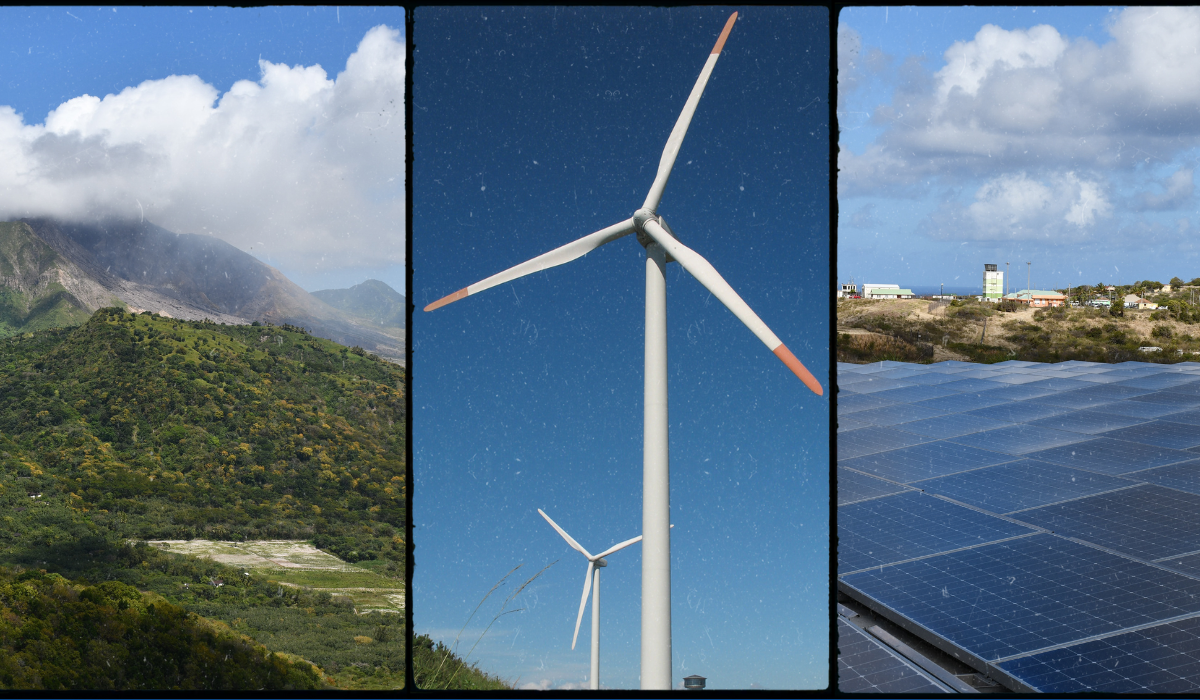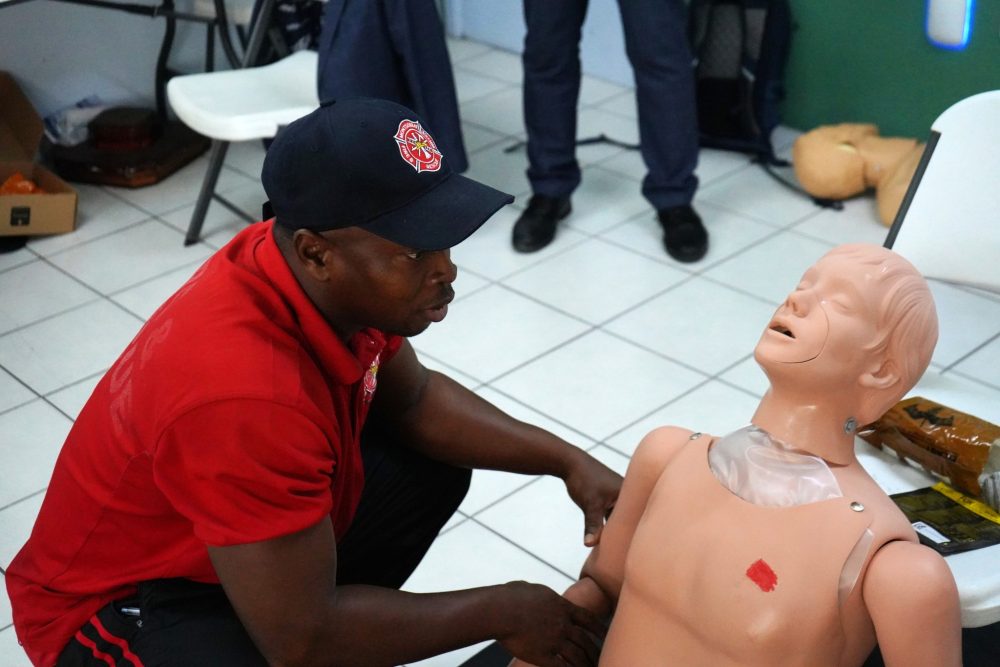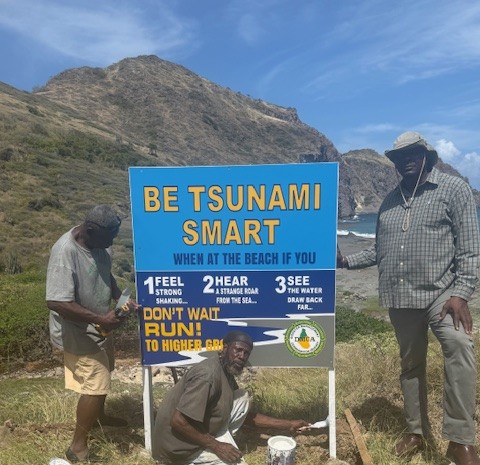Financing Montserrat’s move to 100% renewable energy is a critical consideration and one that will affect how successful the government will be in realizing its 2030 goal.
According to the new Energy Task Force Report, “Any future investment in renewable energy would require funding beyond current or prospective budget allocations.” The report, which was commissioned by the Ministry of Communications, Works, Labour, and Energy (MCWLE) evaluates the island’s readiness and the possibilities of utilising its natural resources to power all aspects of life here. It also presents several options on how Montserrat can finance its 100% renewable energy vision.
Montserrat is heavily dependent on grant aid for both recurrent operational expenditure and capital project expenditure. Most of this grant aid is provided by the UK Government. Capital projects are also funded through the UK Caribbean Investment Fund (UKCIF), the Caribbean Development Bank (CDB), and the European Union (EU).
Energy Investments to Date
The Government of Montserrat (GoM) has benefitted and continues to benefit from a range of grant funding streams. Over the last decade, more than EC$110 million has been invested in energy-related projects here.
In 2011, the construction of an EC$36 Mil permanent power station commenced, financed by an EC$ 22.4 DFID (now FCDO) grant, a loan of EC$6.76 Mil from Caribbean Development Bank (CDB), and an EC$1 Mil grant from CDB. On the heels of this investment, DFID invested over EC$60 Mil between 2012 to 2016 into geothermal exploration on the island. Just under EC$2 Mil was expended in 2018 on a 250 kW Photovoltaic system at Brades power station, while just over EC$10 Mil was spent on the installation of a 750 kW with 1.088 Battery Energy Storage System (BESS) in Lookout village.
To improve the lighting efficiency and lighting coverage on the island, EC$3.5 Mil was expended on a street lighting project. The European Union funded the last three projects.
The Task Force, which compromised members of the government and other private stakeholders, noted in its report that “depending on the technology chosen, over the period 2021-2031, the Government of Montserrat would need to source financing between EC$31.5Mil to EC$70.2Mil to implement a generation expansion plan that meets the growing demand for electricity on the island.”
The report noted that “if the decision is taken to move forward with the single-phase geothermal scenario by mid-2022, the government would need to secure funding in excess of EC$65Mil.”
Since 2016, no significant investment has been injected into the energy sector by DFID (now the Foreign Commonwealth & Development Office FCDO), while future funding from the EU is uncertain due to BREXIT, the task force report stated. “Additionally, grant funding from CDB is limited. Hence, a more comprehensive scan for financing will have to be made.”
IRENA and CARICOM
The task force, led by Energy Director, Kenrick Burke, identified the possibility of obtaining grant funding through The International Renewable Energy Agency (IRENA) and the CARICOM Development Fund (CDF), who have partnered to accelerate the energy transition in the Caribbean.
“IRENA and CDF have signed a Memorandum of Understanding (MOU) to support a shift from fossil-fuel dependency to a more resilient and sustainable low carbon economic development model in the Caribbean Small Island Developing States (SIDS). With this agreement, a significant amount of money is available to Caribbean islands in the form of grants and concessionary loans. Islands such as Bahamas, Barbados, and St Vincent and Grenadines have benefited from this fund towards implementing solar projects,” Burke revealed.
While Montserrat cannot access this fund because it is a British Overseas Territory, the task force believes that a strong case can be made to IRENA for obtaining technical assistance.
The Green Climate Fund
The Green Climate Fund (GCF) was set up to provide developing countries with access to climate finance. GCF has invested almost USD 1.1 billion of its USD 7.3 billion committed resources during the past four years, specifically in climate change adaptation measures. To date, GCF has provided US$100 million in funding via nine climate projects in 11 CARICOM countries.
While Montserrat has access to this fund, accessing the funds has proven to be a challenging task for most islands that have attempted to apply. In the short term, Montserrat may be able to access funding via The GCF Simplified Approval Process (SAP) for projects up to US$10 million, with minor to no environmental and social risks and impacts. The task force urged that efforts should be made to access this funding stream.
Debt Financing
Montserrat would have to receive approval from the British Government to access debt financing investing in renewable energy locally with interest rates as low as 4.5%. Delays in providing assurances around contingent liabilities and the increase of the financial and technological risk on GoM and by extension Her Majesty Government (HMG) are of concern.
The task force report noted that “if the investment does not perform as predicted, the GoM runs the risk of defaulting on its loan payment. Additionally, the benefit to the ratepayer is diminished since more of the savings will have to be paid towards interest payment.”
Task Force Financing Recommendations
The Task Force “recommends that the government put forward a strong case showing the importance and time-sensitive nature of implementing the required energy transition. Within this plan, GoM should provide a strong business case and technical rationale, with a detailed timeline for implementation. Understanding the backdrop on which this funding is being requested, with FCDO having already invested millions into geothermal exploration on the island with no tangible output…, further grant funding will require a robust case with a clear return on investment.”
The recommendation continues, “To this end, we recommend that the business case present a range of investment options that have been considered as part of an Economic Case, including the implementation of a 3 MW geothermal plant at an estimated cost of EC$62.9 Mil and an alternative 1.5 MW geothermal plant at the cost of EC$31.3 Mil. Additionally, the project can be financed through a blended mechanism. As a sign of Britain commitment to climate change, GoM can request EC$41 Mil (65% of 3MW project cost) from FCDO, secure EC$15.7 (25%) via debt financing, and as an opportunity for locals and members of the diaspora to own a slice of the local energy sector, raise EC$6.2 mil via bond, shares or other financial instruments. This funding mechanism limits GoM financial exposure; however, the technical risk lies with the GoM. The technical risk can be minimised if GoM contracts an Energy Procurement Company (EPC) to build and operate the facility for a minimum period of 10 years.”
Along with these options, the Energy Task Force Report offers considerations for an Energy Levee and Public Private Partnerships.
Read more about the recommendations for financing Montserrat’s renewable energy play in the Energy Task Force Report by downloading a copy at Energy-Task-Force-Final-Report.pdf (www.gov.ms)
Discover more from Discover Montserrat
Subscribe to get the latest posts sent to your email.




